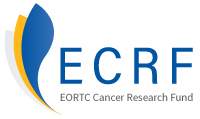MISSION
The Group aims to improve the clinical care of patients suffering with cutaneous or ocular (eye) melanoma, and to increase knowledge about melanoma acquisition and progression. Group sub-committees focus on topics including epidemiology, early stage melanoma, surgery, pathology and systemic therapy (adjuvant and for advanced disease).
PRACTICE CHANGING RESEARCH
Melanoma is the deadliest form of skin cancer. Historically, melanoma was a rare cancer, but in the last 50 years its incidence has risen faster than almost any other cancer [1] making it the 19th most commonly occurring cancer worldwide,[2] with over 320,000 new cases and over 55,000 deaths, in 2020. [3] After Australia and New Zealand, European countries have highest rates of melanoma incidence. According to GLOBOCAN, in Europe there are approximately 144.000 cases diagnosed per year and 27.000 deaths related [4].
Starting from pigment-producing cells (melanocytes) in the skin, melanoma spreads to other parts of the body through metastasis. Patients with stage III melanoma usually undergo surgery to remove the primary tumour and the nearby metastasised lymph nodes (i.e., to which mobile tumour cells have migrated). However, successful surgery does not guarantee that patients will be cancer-free, and stage III melanoma patients bear a high risk that their cancer returns.
LATEST PUBLICATIONS
Want to read in detail our scientific findings on specific tumour type?
Search through our comprehensive list of EORTC published articles to date.



